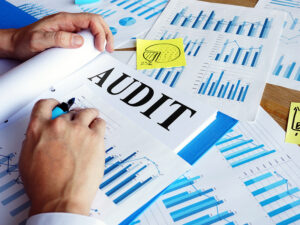Tax Implications of Holding Precious Metal Assets in Your IRA
Kirsch CPA Group
Dec 17, 2020

Given today’s stock market valuations and historically low-interest rates on fixed-income investments, some IRA owners may be interested in moving some funds from equities and low-risk securities (such as Treasuries and money-market funds) to precious metal assets. Before you invest in gold, silver, or platinum, however, here are some federal income tax issues to consider.
Precious Metal Assets Held in Your IRA
As a general rule, an IRA investment in any metal or coin counts as the acquisition of a collectible item. As such, the transaction is characterized as a taxable distribution from the IRA followed by a purchase of the metal or coin by the IRA owner (you). In effect, this general rule prohibits IRAs from investing in precious metals or coins made from precious metals.
However, the Tax Code supplies an important statutory exception: IRAs can invest in 1) certain gold, silver, and platinum coins and 2) gold, silver, platinum, and palladium bullion that meets applicable purity standards. However, the coins or bullion must be held by the IRA trustee or custodian rather than by the IRA owner. These rules apply equally to traditional IRAs, Roth IRAs, SEP accounts, and SIMPLE-IRAs.
Physical IRA Investments in Precious Metals
Under the statutory exception, IRAs can own certain precious metal coins and bullion, including:
- American Gold Eagle coins,
- Canadian Gold Maple Leaf coins,
- American Silver Eagle coins,
- American Platinum Eagle coins, and
- Gold, silver, platinum and palladium bars (bullion) that meet applicable purity standards.
For example, gold bars must be 99.5% pure or better and silver bars must be 99.9% pure or better. The practical concern is finding an IRA trustee who’s willing to set up a self-directed IRA and facilitate the physical transfer and storage of precious metal assets. Only a few outfits are willing to act as trustees for self-directed IRAs that hold allowable precious metal coins or bullion.
Willing trustees can be found with an Internet search and will arrange for the physical storage of precious metal assets owned by IRAs. A precious metals IRA trustee will usually charge:
- A one-time account set-up fee,
- An annual account administrative or maintenance fee for sending account statements, and
- An annual fee for storage and insurance.
Additional fees may be charged for transactions including contributions, distributions, and commissions for precious metal purchases and sales.
Indirect IRA Investments via Precious Metal ETFs
Buying shares of an exchange-traded fund (ETF) that tracks the value of precious metal assets is an option for those who don’t want to deal with the issues that surround the physical ownership of precious metal coins or bullion by IRAs. At one time, there were concerns that an IRA’s acquisition of shares in a precious metal ETF could be treated as the acquisition of a collectible. In turn, this treatment would result in a deemed taxable distribution from the IRA.
Thankfully, the IRS now says that IRAs can buy shares in precious metal ETFs that are classified as grantor investment trusts without any such problems. The following table summarizes recent Private Letter Rulings (PLRs) that relate to IRA investments in precious metals:
| PLR | IRS Ruling |
| 200732026 | IRAs can buy shares in a gold ETF. |
| 200732027 | IRAs can buy shares in a silver ETF. |
| 201446030 | IRAs can invest in trusts that hold gold. |
Under the latest PLR, the rules prohibiting direct IRA investments in gold don’t apply when the gold is held by an independent trustee. In the situation addressed by the letter ruling, shares in a gold-holding trust (presumably an ETF) were sold to the public, including IRAs, and were traded on a stock exchange.
Important: Another indirect (and simple) way to invest in precious metals is to have your IRA buy common stock shares of mining companies or mutual funds that hold mining stocks.
Age-Related Considerations for IRA Owners
Precious metals prices generally are volatile. So, it’s important to consult with a financial professional who specializes in precious metals to understand the potential pitfalls before applying this strategy. Using an IRA to invest in precious metal assets becomes especially problematic when you’re at or near retirement age.
In addition, once a traditional IRA owner reaches age 72, annual IRA required minimum distributions (RMDs) must be taken. (Note: The CARES Act suspended RMDs for 2020.) An individual’s traditional IRAs (including any SEP-IRAs and SIMPLE IRAs) must have sufficient liquidity to allow for RMDs. That said, you aren’t required to take RMDs from each IRA. The only requirement is that the proper total amount (at least) be withdrawn from one or more accounts.
For example, you could have one IRA that is invested in precious metal bullion, and another IRA that’s invested in liquid assets, such as publicly traded stocks and mutual funds. You could take the annual RMD amount from the liquid account while leaving the precious metal account untouched.
Right for You?
IRAs can invest in gold and other precious metals in several different ways. Each way has advantages and disadvantages. Although it’s important to keep in mind that there are many risks, in addition to tax exposure, associated with investing in precious metals. Contact Kirsch CPA Group at 513.858.6040 for more information on the tax consequences of these types of investments. Schedule a time to talk with Kirsch.
More Resources

About The Author
Kirsch CPA Group is a full service CPA and business advisory firm helping businesses and organizations with accounting,…
Sign Up for Email Updates
Tags
Accounting & Financial News

Audits Are Essential to Your Organization’s Health
Audits have become more important due to increased public and government scrutiny of not-for-profit organizations, their management…

Tax Update: What the “One Big Beautiful Bill” Means for You
On July 5, President Trump signed the One Big Beautiful Bill Act (OBBB) into law—a sweeping tax…



